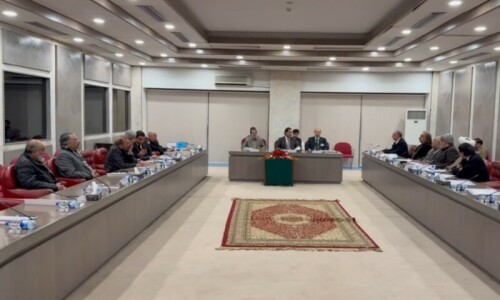OUR inability to collect sufficient tax revenue is resulting in persistently high fiscal deficits, forcing successive governments to accumulate an unsustainably high debt — domestic and external — to finance their budgets year after year. The current administration has now pledged to raise tax-to-GDP ratio by over 3pc from the existing 9.5pc to 13pc in the next three years as it negotiates another IMF bailout to avert an economic meltdown. However, few believe it can do so without taxing every sector of the economy equitably. Agriculture is one potential area that can produce sizable revenues. Nonetheless, the sector contributed less than 0.1pc of the direct tax collection of Rs3.7tr in the last fiscal year, despite comprising nearly a quarter of the national economy. Why is this so? One reason is that agriculture income tax remains a provincial subject because it suits the interests of big landlords who enjoy substantial political clout in the assemblies. Besides, the provinces have limited capacity to assess farm incomes and collect tax accordingly. More importantly, tax rates on farm income are much lower than the federal rates applicable to income derived from other sources. The highest slab on agricultural income is just 15pc in Sindh and Punjab, compared to nearly 39pc on salaried individuals.
The abysmally low rates on farm incomes have in effect turned agriculture income tax into a ‘tax haven’ for tax cheats. An IMF paper has indicated that tax exemption on agricultural income makes this sector a legal, and sometimes illegal, tax shelter for other forms of income. Transfers from other sectors of the economy to agriculture are commonplace to avoid income taxes. It means application of federal tax rates on agricultural income could yield substantial revenues for the budget and reduce the growing burden on the rest of the economy. But this is not possible unless agriculture income tax is transferred to the centre for assessment and collection under normal income tax laws. That will require a consensus at the NFC forum and then a constitutional amendment. Until we get there, the provinces must bring agriculture income tax rates on a par with normal income tax rates and transfer it to FBR. The revenues from farm incomes can be distributed amongst the provinces till an agreement is reached to make it part of the divisible tax pool.
Published in Dawn, July 11th, 2024












































Dear visitor, the comments section is undergoing an overhaul and will return soon.